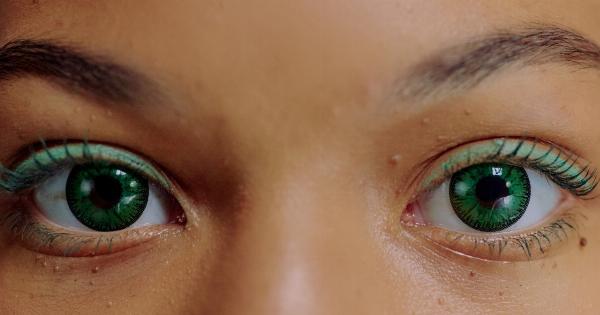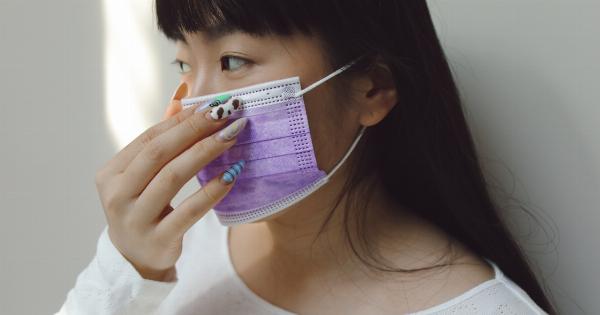Wearing contact lenses can be convenient, comfortable, and even essential for certain activities. However, there are certain mistakes that you want to avoid to keep your eyes healthy and your vision clear.
Here are some common mistakes that may cause discomfort, irritation, infections, or other problems with contact lenses:.
Using Tap Water to Clean or Rinse Lenses
Tap water, even if it is from a clean source or filtered, is not sterile or safe to use as a cleansing or rinsing solution for contact lenses.
It may contain bacteria or parasites, such as Acanthamoeba, that can attach to contact lenses and cause corneal infections, ulcers, or even blindness. Always use a recommended contact lens solution or sterile saline to clean and rinse your lenses, and follow the instructions on how long and how often to use them.
Sleeping with Contact Lenses
Sleeping with your contact lenses on can increase the risk of eye infections, dryness, redness, or other discomfort.
Your eyes need oxygen to stay healthy, and wearing lenses for extended periods can reduce the amount of oxygen that reaches your corneas. In addition, sleeping with your lenses on can increase the deposition of debris or protein on the lenses, making them harder to clean or reducing their longevity.
If you accidentally fall asleep with your lenses on, remove them as soon as possible, and allow your eyes to rest and recover before wearing them again.
Not Washing or Drying Your Hands
Touching your contact lenses with dirty, greasy, or wet hands can transfer bacteria or other irritants to your eyes, leading to infections or allergies.
Before handling your lenses, wash your hands thoroughly with soap and warm water, and dry them with a clean towel or a disposable tissue. Avoid using moisturizers, creams, or lotions before handling lenses, as they can leave a residue on the lenses and reduce their clarity.
Using Expired or Worn-out Lenses
Contact lenses have an expiration date, and their quality and safety may deteriorate over time, especially if they are exposed to heat, humidity, or light.
Using expired lenses can increase the risk of infections, allergies, or other side effects on your eyes. Additionally, wearing lenses beyond their recommended lifespan can make them more difficult to disinfect, or cause scratches, tears, or protein buildup that impairs your vision or causes discomfort.
Be sure to check the expiration date on your lenses, and dispose of them properly when they expire or when you notice signs of wear and tear.
Sharing or Borrowing Lenses
Sharing contact lenses with someone else, even if they are your friend, family member, or partner, is not recommended, as it can transmit infections, allergic reactions, or other eye problems.
Similarly, borrowing lenses from someone else, even for a short time, can expose your eyes to unfamiliar microorganisms or irritants, and make them more vulnerable to infections or other side effects. Each person’s eyes have a unique shape, size, and prescription, and wearing lenses that are not fitted or prescribed for you can cause discomfort, blurred vision, or even damage to your corneas.
Not Following Your Eye Doctor’s Instructions
Your eye doctor is the best source of advice on how to properly use, wear, store, and clean your contact lenses.
Not following their instructions or recommendations can increase the risk of complications, decrease the effectiveness of the lenses, or reduce your overall eye health. Be sure to attend regular checkups with your eye doctor, and report any unusual symptoms, discomfort, or changes in your vision, even if they seem minor.
Your eye doctor may need to adjust your prescription, recommend a different type or brand of lenses, or perform additional tests to ensure your eyes are secure and comfortable.
Using Decorative or Colored Lenses without a Prescription
Decorative or colored contact lenses are popular for enhancing or changing one’s appearance, especially during holidays, parties, or theatrical performances.
However, these lenses should not be worn without a prescription or a valid fitting by an eye doctor, as they can cause serious eye problems. Some colored lenses are not approved by the FDA, and may contain harmful chemicals or impurities that can damage your corneas or cause infections.
Additionally, decorative lenses may not fit properly, and can shift, blur your vision, or scratch your eyes. Always consult with your eye doctor before using any type of contact lenses, and follow their instructions carefully.
Wearing Lenses in Hot Tubs, Swimming Pools, or Showers
Contact lenses should not be worn or exposed to water, especially in hot tubs, natural bodies of water, or swimming pools.
Water can contain bacteria, viruses, fungi, or parasites that can attach to your lenses and cause infections, irritations, or allergies. Additionally, water can change the shape, size, or prescription of your lenses, and make them less effective or more uncomfortable.
If you need to wear lenses during water-related activities, consider using waterproof or prescription goggles, or disposable lenses that can be discarded afterwards.
Rubbing or Touching Your Eyes Excessively
Rubbing or touching your eyes excessively, even to adjust your contact lenses, can lead to irritation, inflammation, or corneal abrasions.
Your eyes are delicate organs, and excessive pressure or friction can damage the surface or cause tiny scratches that may lead to infections or other complications. Instead of rubbing your eyes, try blinking or using artificial tears to lubricate your lenses and your eyes. If you feel discomfort or itching, remove your lenses and let your eyes rest before wearing them again.
Ignoring Red Flags
Your eyes can often tell you when something is wrong with your lenses or with your eye health in general.
Ignoring red flags, such as blurred vision, pain, redness, swelling, tearing, or sensitivity to light, can lead to more serious problems or even vision loss. If you experience any of these symptoms, remove your lenses immediately, and consult with your eye doctor as soon as possible. Delaying treatment or ignoring warning signs can result in irreversible damage, infection, or other complications.
Not having a Backup Pair of Glasses
While contact lenses can be very useful and convenient, they may not be suitable or safe for all situations or activities.
Having a backup pair of glasses can provide you with an alternative form of vision correction, especially if you experience any of the mistakes or problems mentioned above. Glasses are also beneficial for giving your eyes a break from contact lenses, or for situations where lenses may prevent you from seeing clearly, such as during heavy rain, dusty environments, or strenuous physical activities.
Make sure your glasses are up to date, and carry them with you whenever you need them.





























